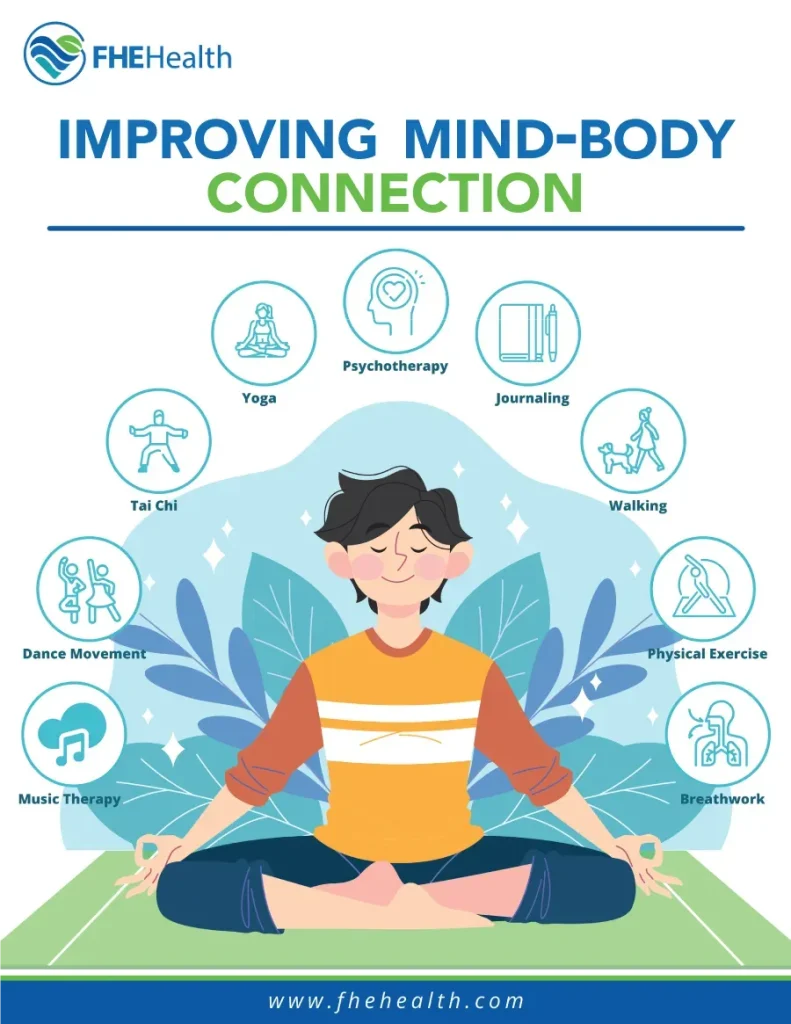Mind-Body Health offers a practical, evidence-based path to well-being that honors the daily dialogue between body and mind. By embracing stress management, you can calm the nervous system, sharpen focus, and support focus improvement, boosting overall resilience. This approach emphasizes mindfulness and breathwork techniques that nourish attention, reduce tension, and support steady energy throughout daily life. A strong mind-body connection helps you sleep better, think more clearly, and sustain healthier habits over time for longer, more consistent days. Whether you’re new to these ideas or seeking a simple routine, small daily practices—consistent, scalable, and enjoyable—make a meaningful difference over time.
Seen through the lens of brain-body synergy, wellness grows from coordinated signals between nervous system activity, breathing, and posture. Other helpful frames include physiological regulation, autonomic balance, and heart–brain communication, which capture the same concept in search-friendly terms. These perspectives emphasize cognitive-emotional balance, mood stability, and physical vitality that reinforce one another. Using varied terminology helps readers connect the practice to work, home, and everyday life while reinforcing the core idea of a connected mind and body.
Frequently Asked Questions
How does Mind-Body Health support stress management and focus improvement in everyday life?
Mind-Body Health hinges on the bidirectional mind-body connection: stress can quicken thoughts, tighten posture, and blur focus, while breathwork, mindfulness, and movement calm the nervous system and sharpen attention. Practical steps include daily diaphragmatic breathing, a brief body scan, and short mindful pauses paired with light movement—together these routines strengthen stress management and support sustained focus improvement over time.
What simple breathwork and mindfulness practices strengthen the mind-body connection for better sleep and daytime performance?
Try box breathing (inhale, hold, exhale, hold for 4 counts each) for several cycles, add diaphragmatic breathing for five minutes, and insert 60-second mindfulness anchors during the day. Pair these with posture checks and brief movement breaks to reinforce the mind-body connection, reduce stress, improve sleep quality, and support consistent focus improvement.
| Topic | Core Idea | Practical Takeaways |
|---|---|---|
| What Mind-Body Health Is | Mind and body influence each other daily; stress affects thoughts, posture, and focus; balance yields compounded health benefits. | Adopt practical, accessible practices; emphasize stress management, focus, mindfulness, and breathwork to build a foundation for better sleep, energy, and resilience. |
| Brain-Body Connection | The brain and body form a bidirectional loop; regulating breath, posture, and daily movements can shift brain chemistry and improve stress and attention. | Practice diaphragmatic or box breathing; monitor posture; be consistent with small daily adjustments. |
| Habit-first Orientation | Start with trackable routines; consistency matters more than perfection. | Implement small, repeatable routines for stress and focus; track progress in a simple journal. |
| Breathwork Foundation | Breath links mind and body; short exercises calm nerves and sharpen focus quickly. | Box breathing (4×4), diaphragmatic breathing; short sessions when pressed for time; progress to longer cycles. |
| Mindfulness and Focus | Mindfulness trains attention by anchoring to a fixed sensation and gently redirecting when distracted. | Use short anchors; three 60-second mindful breaks during work; observe breathing and body scan to reset attention. |
| Movement and Posture | Movement releases brain signals that support learning; posture influences stress responses and concentration. | Simple routines: 2-minute morning stretch, 5-minute walk, 2-minute mobility; maintain upright posture. |
| Sleep and Recovery | Sleep is a foundational engine for stress regulation and memory; recovery is essential for performance. | Establish a calming bedtime routine; sleep hygiene; hydrate and nourish to support cognitive function. |
| Routines for Busy Lives | Short, accessible routines fit into most schedules. | Morning reset, midday recharge, evening wind-down; aim for consistency over duration. |
Summary
Mind-Body Health is a practical, evolving partnership between mind and body that invites readers into a descriptive path toward resilience, clearer thinking, and steadier energy. Breathwork, mindfulness, movement, sleep, and nutrition are presented as simple, repeatable practices that, when done consistently, support stress management and sharpen focus. By embracing the interconnected signals of mind and body, you can build a foundation for better sleep, sharper decision-making, and a more vibrant sense of wellbeing. Start today with small, doable exercises, observe how your body responds, and gradually weave these habits into everyday life for lasting health and vitality.

